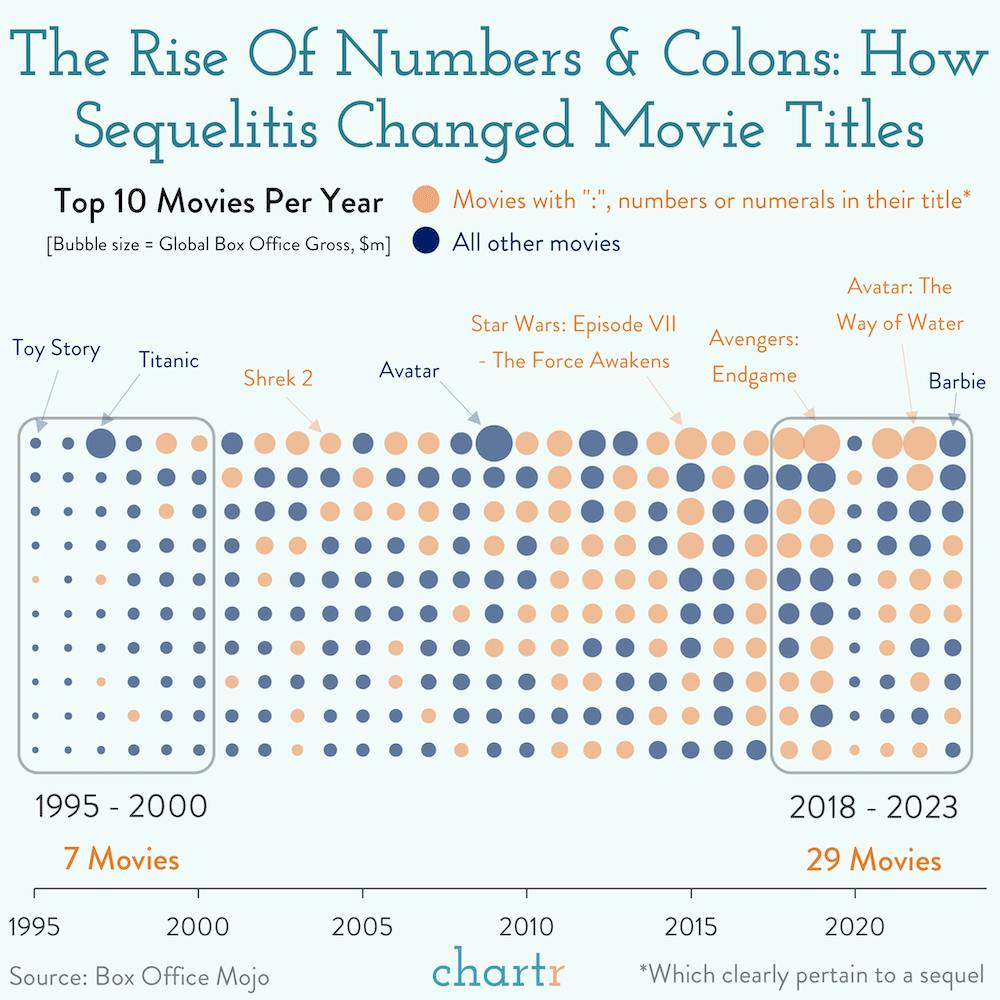Sequels part 2: into the unknown
Indeed, though we’ve charted about “sequelitis” a lot in the past, filmmakers' appetite for risk only appears to be diminishing. Recent analysis from EntTelligence, for example, revealed that just 5 of the 60 highest grossing films since 2016 (not including 2020) can be classified as “true original” titles, as opposed to sequels, IP reboots or rehashes.
While complaining about sequels is nothing new, the proliferation of second, third, fourth, and fifth parts has had a profound effect on the titles of the biggest movies on our screens.
Digits and dots
Looking at the 10 biggest movies of each year from 1995 to 2000, just 7 movie titles contained numbers or colons that denoted a sequel, such as The Lost World: Jurassic Park from ‘97 or Toy Story 2 from ‘99. Since then, however, a world building surge has meant that movie makers (and marketing departments) have needed to change up title formats, slipping in subtitles preceded by colons, or nudging numbers into whichever Fast and Furious installment they’re onto now. Indeed, nearly half of the top grossing films of the last 5 years contained either a colon or numerical figure that indicated sequel status.
We may not even have seen “peak sequel”. In 2023 book You Are What You Watch, Walt Hickey posits an interesting distinction: sequels and movies that rely on old IP aren’t born from crazed searches for profit, but rather on the studios’ need for a reliable means of “not losing money” — tried and tested remakes appeal to “risk-aversion motivation”, offering a rare reprieve for the industry as eyes shift elsewhere.
